Orkiestra
Antonio Vivaldi
The Four Seasons
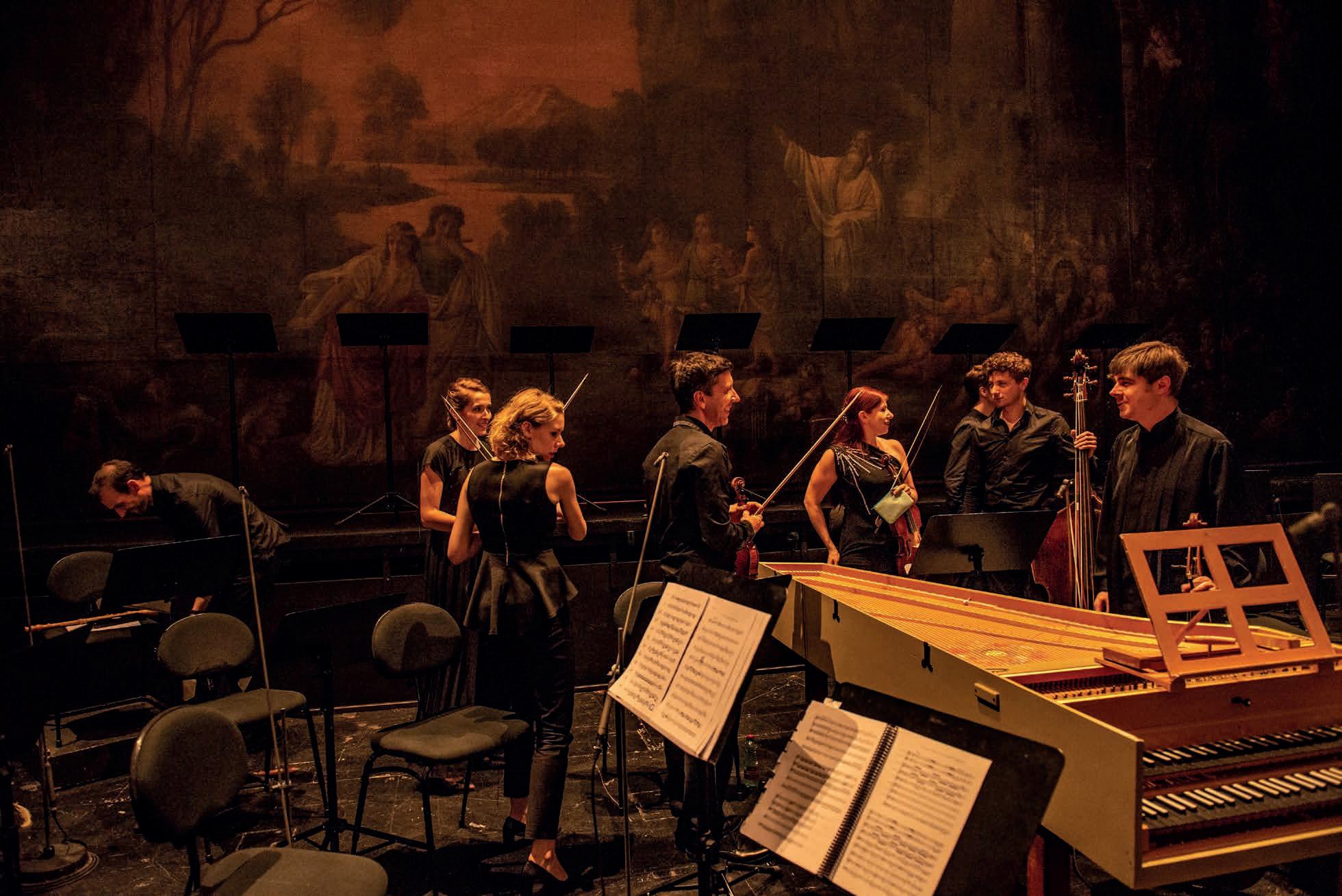

Antonio Vivaldi

Baroque music most famous
Concert maintained in holding - attentionperformance style - involving various members of the orchestra to play solo parts, originally intended to be performed by only one soloist. Some parts may be performed in total darkness (one of the concerts is titled “La notte” - night).
The musicians also adapt their placement to the architecture of the concert venues, e.g. the ensemble is divided into two parts, with some musicians placed in less formal, less predictable spaces of the concert hall.
The performance takes advantage of the lights and placement of the musicians.
Antonio Vivaldi
Baroque music most famous
concert program:
Antonio Vivaldi (1678-1741)
1. Concerto No. 1 in E major, Op. 8, RV 269, "Spring" (La primavera)
Allegro / Largo / Allegro pastorale
2. Concerto No. 2 in G minor, Op. 8, RV 315, "Summer" (L'estate)
Allegro non molto / Adagio e piano – Presto e forte / Presto
3. Concerto No. 3 in F major, Op. 8, RV 293, "Autumn" (L'autunno)
Allegro / Adagio molto / Allegro
4. Concerto No. 4 in F minor, Op. 8, RV 297, "Winter" (L'inverno)
Allegro non molto / Largo / Allegro
additionally possible in the program (requires option 2 in the line-up):
5. "La Notte", Flute Concerto in G minor, RV 439
Allegro / Largo / Allegro
6. „Il gardellino”, Flute Concerto No 3 in D major, RV 428
Allegro / Cantabile / Allegro
Georg Philipp Telemann (1681-1767)
7. Concerto for Recorder and Flute in E minor, TWV 52:e1
Largo / Allegro / Largo / Presto
artists:
{oh!} Orkiestra
Martyna Pastuszka – violin, artistic direction
line-up:
option 1: 11 musicians [6vn, 1vl, 1vc, 1db, hrd, lute] 1 manager
option 2: 15 musicians [6vn, 2vl, 2vc, 1db, 1fl, 1rec, hrd, lute] 1 manager
harpsichord & doublebass to be supplied
{oh!} Orkiestra
The program consists of the most impressive di bravura and coloratura arias
Written during the Baroque period - by Vivaldi, Porpora, Handel, Hasse. The vocal recital will also include an instrumental part of concerti grossi for orchestra and solo violin (Vivaldi, Handel, Scarlatti, Torelli).
listen to:
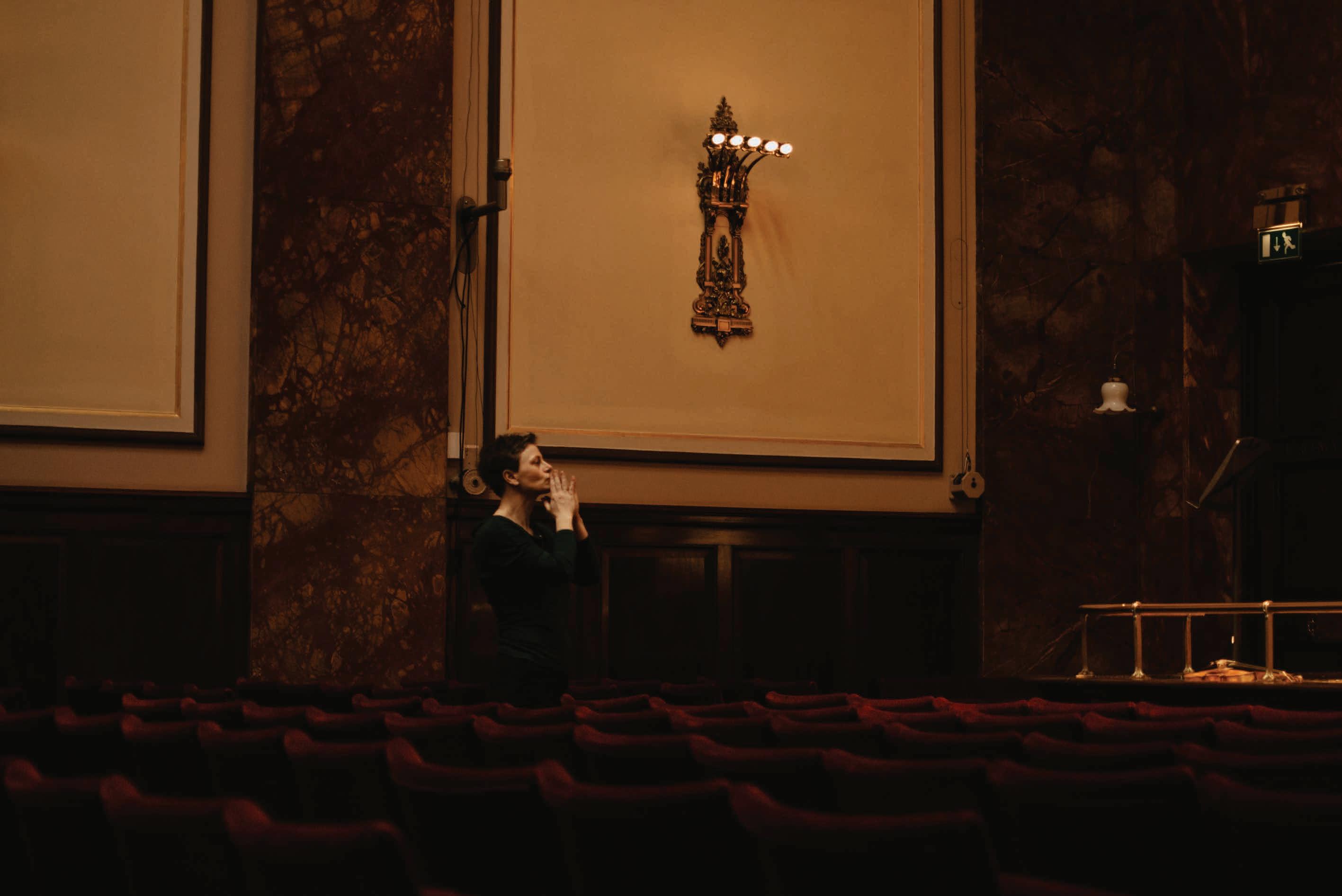
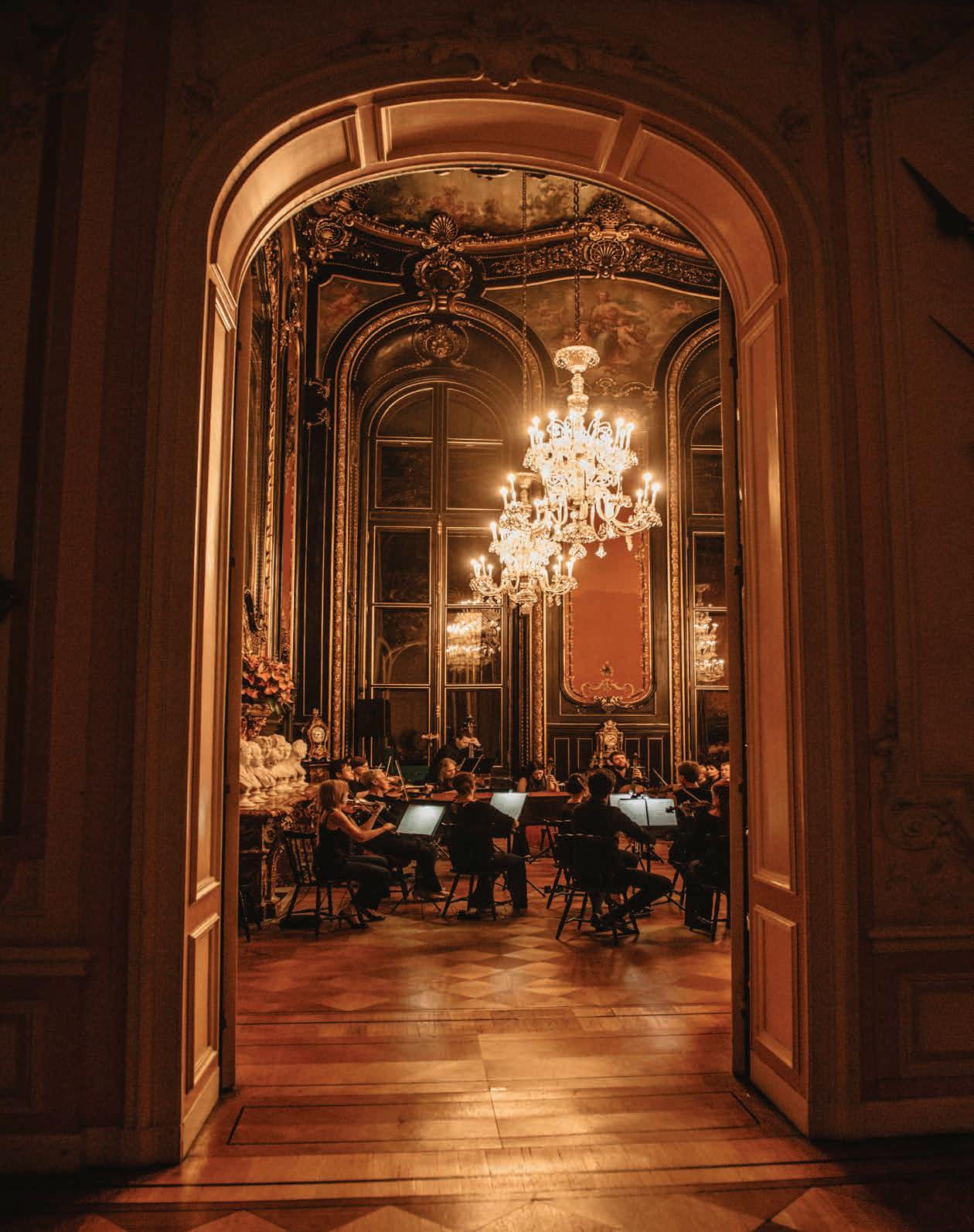
concert program:
Nicola Porpora (1686-1768)
1. Angelica: Sinfonia Siroe: Torrente cresciuto
2. Siface: Tu che d'ardir m'accendi
3. Il trionfo di Camilla: Scuote la quercia annosa
4. Ezio: Ouverture
5. Siroe: Fra l'orror della tempesta
6. Siface: Son pellegrino errante
7. Sinfonia da camera op. 2 no. 5
8. Issipile: Impallidisce in campo
Georg Friedrich Händel (1685-1759)
9. Il Trionfo del Tempo: Un pensiero nemico di pace
10. Il Trionfo del Tempo: Tu del Ciel ministro eletto
artists:
Julia Lezhneva – soprano {oh!} Orkiestra
Martyna Pastuszka – violin, artistic direction
line-up:
option 1:
12 musicians [soloist, 6vn, 1vl, 1vc, 1db, hrd, lute]
1 manager
option 2:
15 musicians [soloist, 6vn, 1vl, 1vc, 1db, 2ob, 1bs, hrd, lute]
1 manager
harpsichord & doublebass to be supplied
{oh!} Orkiestra
the Italian Baroque Job
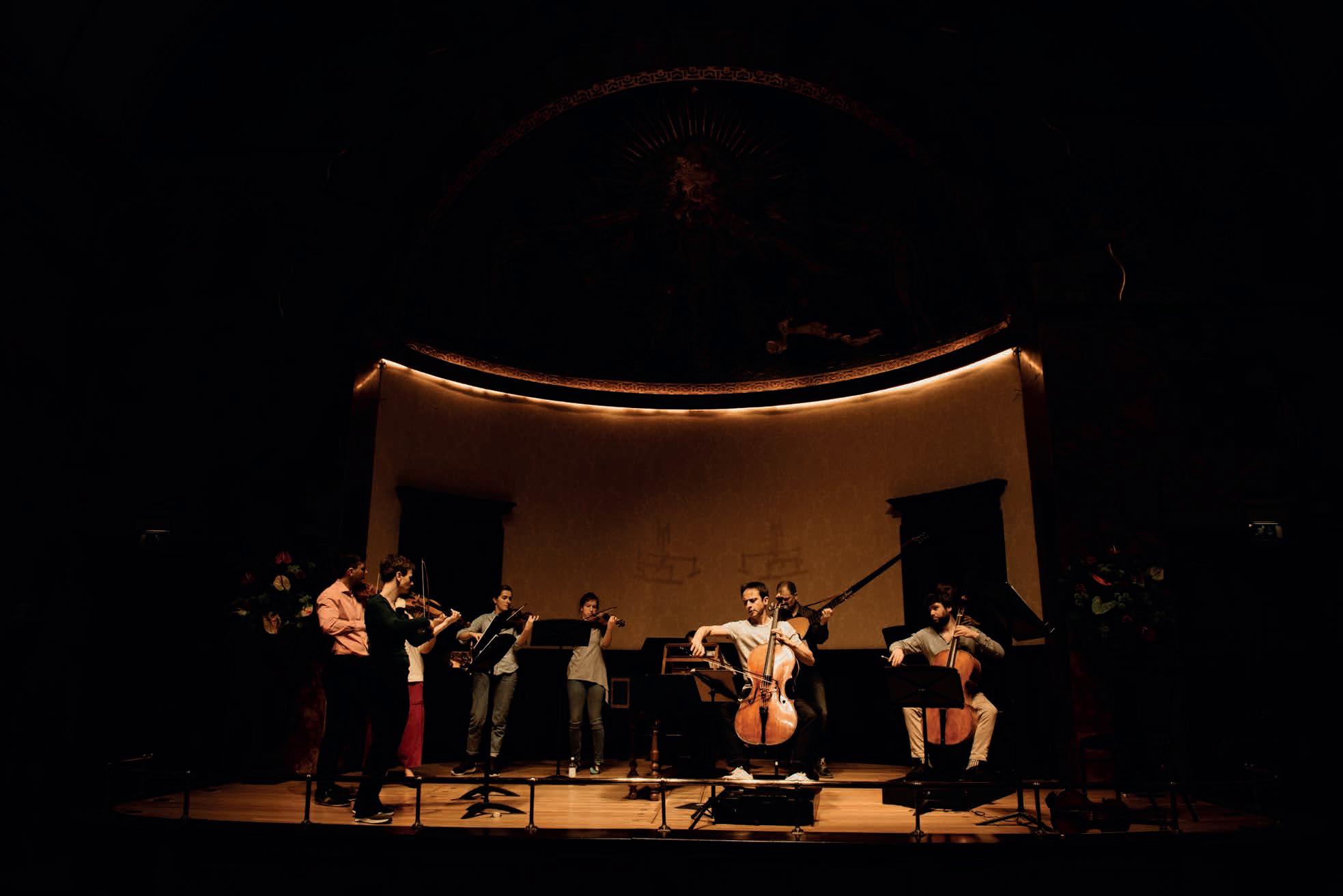
the most beautiful cello concertos
Program includes works written by composers active in various Italian city-states.
The most splendid Venetian Vivaldi and Neapolitan Leonardo Leo in cello concertos, along with the orchestral part of works by Roman Corelli, Bologna's Torelli and Domenico Scarlatti that emigrated to British Isles – thanks to its Vitality, beautiful melodies and energy typical of all these composers.
the most beautiful cello concertos
concert program:
Antonio Vivaldi (1678-1741)
1. Cello Concerto D minor, RV 405
Allegro / Andante / Menuet
2. Cello Concerto G Minor, RV 417
Allegro / Adagio / Allegro
Leonardo Leo (1694-1744)
3. Cello Concerto in D major, L.10
Andantino grazioso / Con bravura / Larghetto con poco moto / Fuga / Allegro molto
Arcangello Corelli (1653-1713)
4. Concerto grosso in D major, Op. 6, No. 4
Adagio - Allegro / Adagio / Vivace / Allegro - Allegro
Giuseppe Torelli (1658-1709)
5. Concerto grosso A Minor, Op.8, No. 2
Allegro / Largo / Allegro
Charles Avison (1709-1770)
6. Concerti Grossi (After Domenico Scarlatti) selection
artists:
Programme might be adjuted to Christmas time.
Jean-Guihen Queyras - cello solo
{oh!} Orkiestra
Martyna Pastuszka – violin, artistic direction
line-up:
12 musicians [6vn, 1vl, 2vc, 1db, lute, harpsichord]
1 manager
harpsichord & doublebass to be supplied
{oh!} Orkiestra
in a good,classical way
in a good,
unevenly divided among instruments.
Countless concertos for violin or piano, and only a few concertos for solo cello and orchestra are known to today’s public. And yet it is an instrument of unique depth of sound, singing and lyrical in every register, agile, rhythmic when needed! Two of the most important classical cello concertos come from Joseph Haydn. The virtuosity and artistry of the Italian phrases, combined with the classically stimulating motorics, ranked these compositions among the absolute canon of the literature of Viennese classicism. This repertoire, combined with the earliest Mozart symphonies, allows us to see the musical landscape of late 18th century Europe, just before the era of Beethoven. Impeccable classical structure, artful, touching Adagio and the exuberant energy of the fast movements were a recipe for success then and now.
listen to:
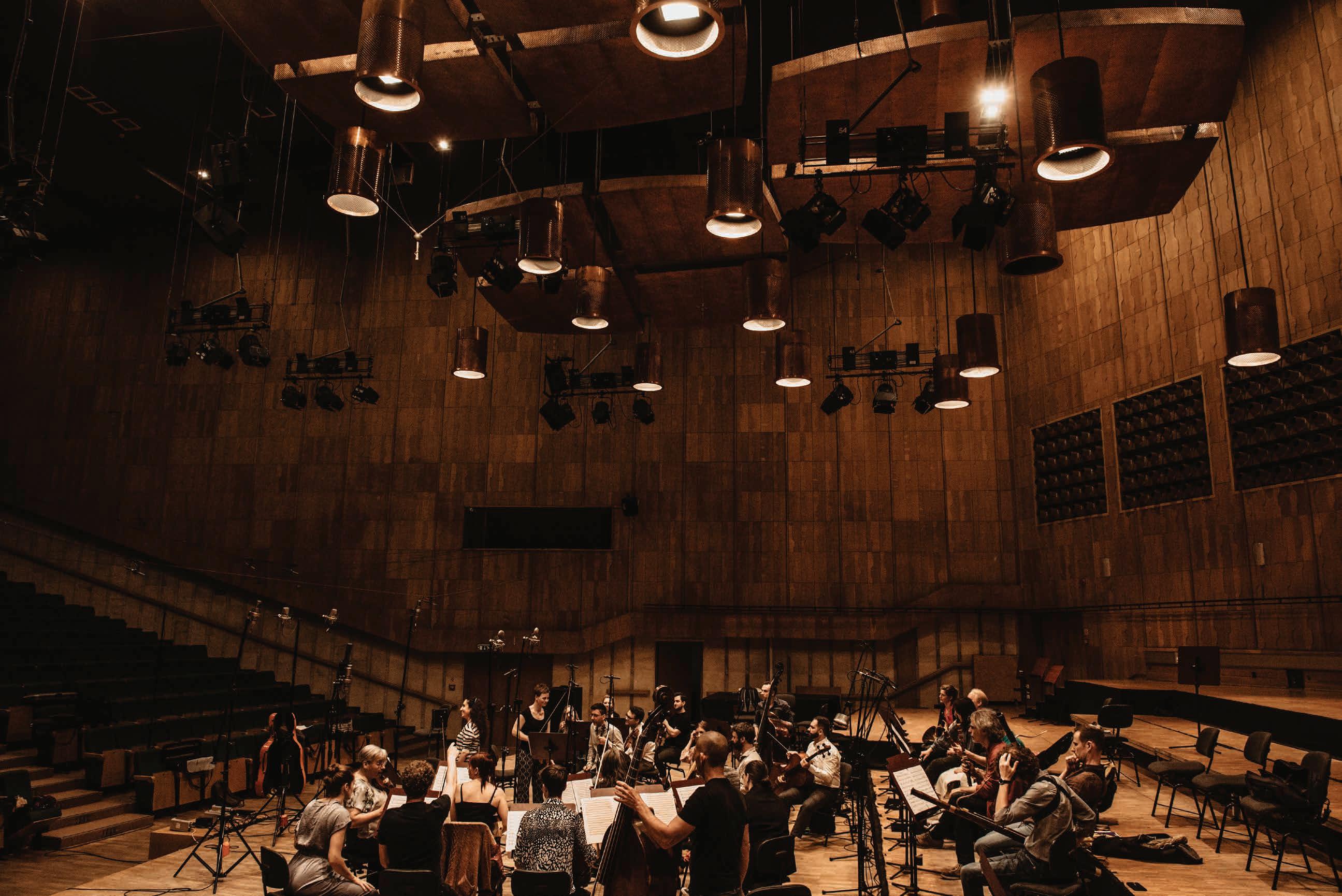
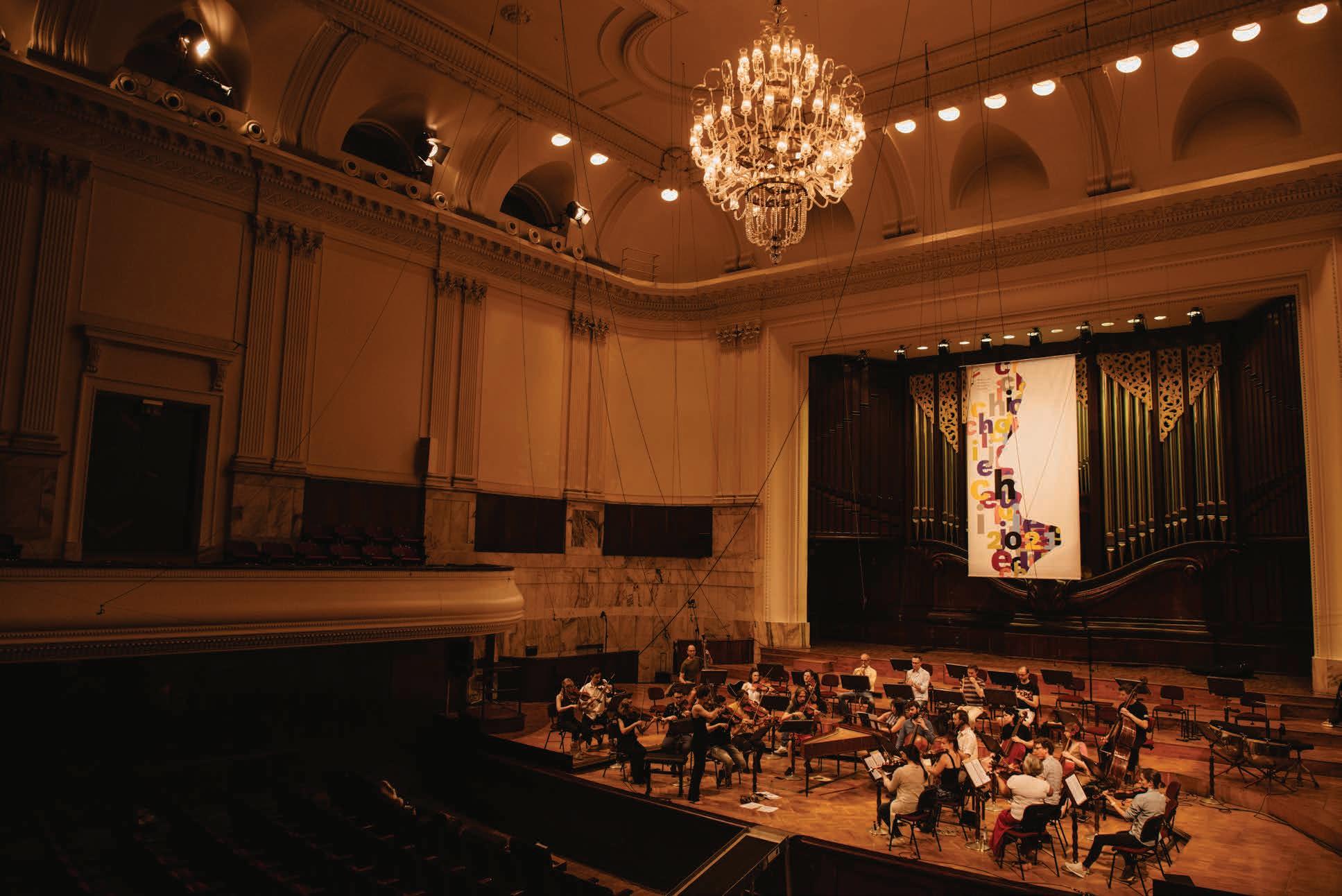
concert program:
Joseph Haydn (1732-1809)
1. Cello Concerto No.1 in C major, Hob.VIIb:1
Moderato / Adagio/ Finale. Allegro molto
1. or Cello Concerto No.2 in D major, Hob.VIIb:2
Allegro moderato / Adagio / [Rondo] Allegro
Giovanni Battista Costanzi (1704-1778)
2. Cello concerto in D major attributed to Joseph Haydn, Hob.VIIb:4
Allegretto / Adagio / Allegro
Wolfgang Amadeus Mozart (1756-1791)
Early symphonies
3. Symphony No. 29 in A major, K. 201
Allegro moderato / Andante / Menuetto / Allegro con spirito
4. Symphony No. 5 in B-flat major K.22
Allegro / Andante / Allegro molto
5. Symphony No. 21 in A major, K.134
Allegro / Andante / Menuetto / Allegro
6. Symphony No. 15 in G major, K. 124
Allegro / Andante / Menuetto / Presto
artists:
Jean-Guihen Queyras - cello solo
{oh!} Orkiestra
Martyna Pastuszka – violin, artistic direction
{oh!} Orkiestra
line-up: 22 musicians [9vn, 3vl, 3vc, 1or2db, 2ob, 1bs, 2cr] 1 manager doublebases to be supplied
the best of Bach
suites
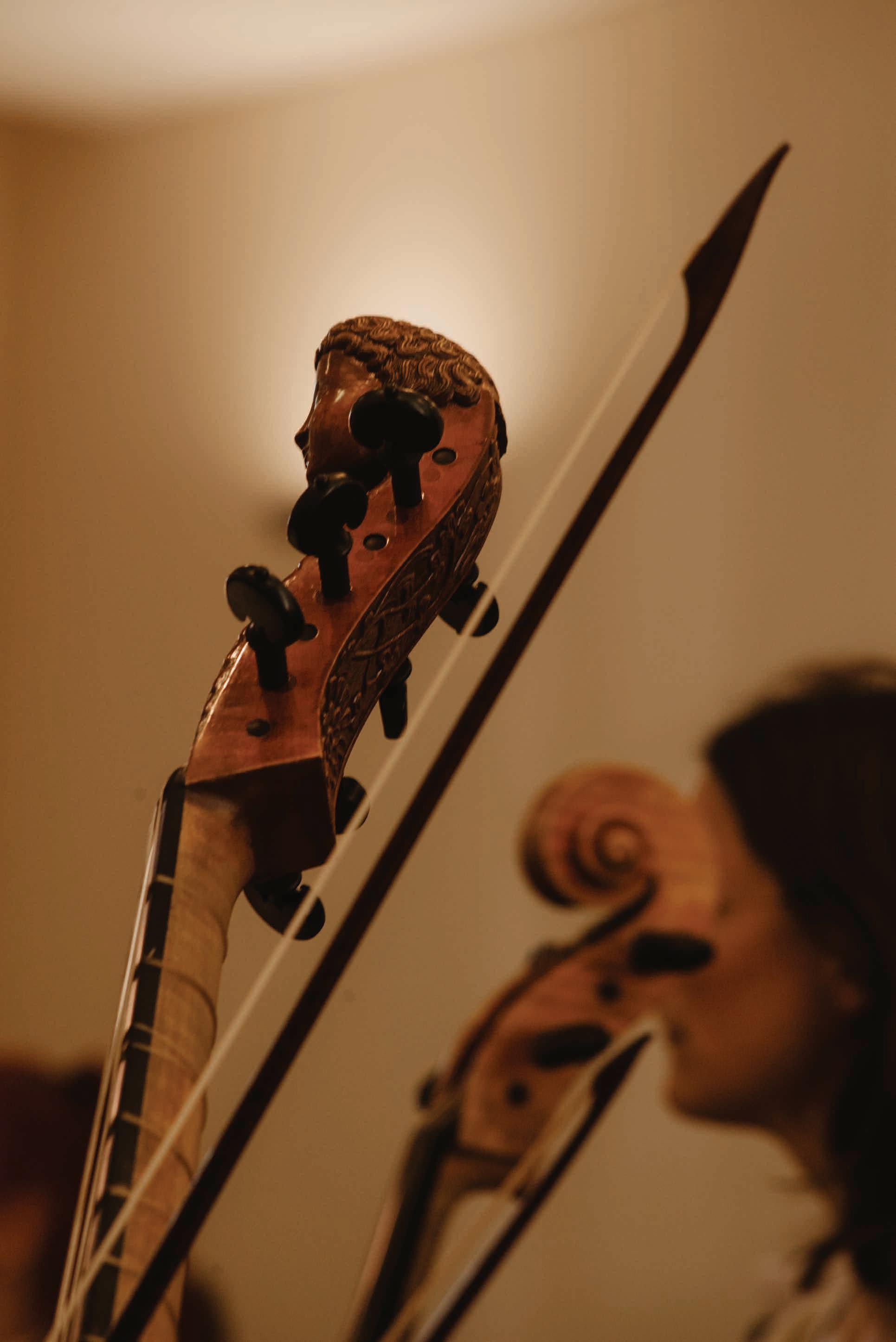
„Bach is Bach, just as God is God...”
- Hector Berlioz is supposed to have said.
It's hard to disagree with this statement, the music of the Leipzig cantor is indeed timeless, universal and unique!
Bach cannot be mistaken with any other composer. If anyone doubts the continuing power of this „unfashionable” music, it is worth looking at the statistics of streaming services.
Last month alone, nearly 5 million listeners worldwide reached for Johann Sebastian's music on Spotify
concertos and suites
concert program:
Johann Sebastian Bach (1685-1750)
1. Orchestral suite No.2 B minor, BWV 1067
Ouverture / Rondeau / Sarabande / Bourrée I & II / Polonaise / Menuet / Badinerie (Battinerie)
2. Harpsichord Concerto No.4 in A major, BWV 1055
Allegro / Larghetto / Allegro ma non tanto
* * * (intermission)
3. Orchestral suite No.3 in D major, BWV 1068 (first version for strings only)
Ouverture / Air / Gavotte / Bouree / Gigue
4. Brandenburg Concerto No. 5 in D major, BWV 1050
Allegro / Affettuoso / Allegro
artists:
Kristian Bezouidenhout – piano
Taya König-Tarasevich - flute
{oh!} Orkiestra
Martyna Pastuszka – violin, artistic direction
line-up:
13 musicians [soloist, 1fl, 6vn, 1vl, 1vc, 1db, hrd, lute]
1 manager
harpsichord & doublebass to be supplied
{oh!} Orkiestra
And yet, this is just one of the possibilities...
The wonderful thing about the music of the Bach family is that this music neither gets boring nor old, and is discovered by newer and newer generations every now and then. And weare convinced is that these compositions can be a perfect remedy for the fast-paced modern world around us. As a pure antidote to media hustle and digital overwhelm, this music can be considered just as a therapy to all of us.


cantatas and suites
concert program:
Johann Sebastian Bach (1685-1750)
1. Cantata: Ich habe genug, BWV 82
2. Cantata: Widerstehe doch der Sünde, BWV 54
Johann Christoph Bach (1642-1703)
3. Cantata: Ach, dass ich Wassers g´nug hätte
4. Orchestral suite No.3 in D major, BWV 1068 (first version for strings only)
Ouverture / Air / Gavotte / Bouree / Gigue
Johann Sebastian Bach
4. I Violin Concerto in A minor, BWV 1041
.../ Andante/ Allegro assai
artists:
Andreas Scholl – countertenor
{oh!} Orkiestra
Martyna Pastuszka – violin, artistic direction
line-up:
12 musicians [soloist, 6vn, 1vl, 1vc, 1db, hrd, lute]
1 manager
harpsichord & doublebass to be supplied
{oh!} Orkiestra
and symphonies

The idea of perfoming Mozart symphonies few times every season, came from the National Frederic Chopin Institute in Warsaw, which has invited us to record the complete Symphonies.. Three symphonies have already been released and three more are awaiting release. The project, scheduled to be carried out until 2033, is woven into other numerous recordings of romantic and classical music being made by the {oh!} Orkiestra.
listen to:
concert program:
Wolfgang Amadeus Mozart (1756-1791)
1. Piano Concerto No. 9 E flat major, K 271 Jeunehomme
Allegro / Andantio / Rondeau
2. Piano Concerto No. 12 in A major, K. 414
Allegro / Andante / Rondeau
3. Early symphonies selection
artists:
Kristian Bezouidenhout – historical piano
{oh!} Orkiestra
Martyna Pastuszka – violin, artistic direction
line-up:
23 musicians [piano, 9vn, 3vl, 3vc, 1or2db, 2ob, 1bs, 2cr]
1 manager
piano and doublebasses should be supplied
{oh!} Orkiestra
jazz Mozart

We met with Makoto Ozone in 2025 - and it was one of the extremely refreshing meetings. Our Mozart was different from all previous ones - the incredible musical understanding between the {oh!} musicians and being open to new experiences made it possible to achieve a unique creation together with the soloist. Some of us who play jazz on a daily basis got into a brilliant musical dialogue with Makoto; others blended in musical-jazz passages written especially for the occasion. In both Mozart's Jeunehomme concerto and Mozart's Symphonies, there is room for a different perspective, specially crafted for each new occasion. Mozart and Jazz are created anew, every time!
listen to:
concert program:
Wolfgang Amadeus Mozart (1756-1791)
1. Piano Concerto No. 9 E flat major, K.271 Jeunehomme
Allegro / Andantino / Rondò, presto
2. Symphony No. 21 A major, K.134
Allegro / Andante / Menuetto / Allegro
3. Symphony No.15 G major, K. 124
Allegro / Andante / Menuetto / Presto
artists:
Makoto Ozone – piano {oh!} Orkiestra
Martyna Pastuszka – violin, artistic direction
line-up:
15 musicians [soloist, 9vn, 3vl, 3vc, 2db, 2ob, 2cr, 1bs]
1 manager
piano & doublebasses to be supplied
{oh!} Orkiestra

- Eugene Delacroix
That's how both Chopin and Mendelssohn can be described, although the quote refers to the Polish-French piano virtuoso Frederic Chopin. Mendelssohn and Chopin were contemporaries and passed away at similar age - two years one after another . Both composers impoverished a group of outstanding 19th century personalities. Rich in impressive achievements, extensive acquaintances and artistic ties with all those who built the musical culture of Europe in the first half of the 19th century.

Mendelssohn's contributions are unparalleled - for example, we owe to him the rediscovery of the J.S. Bach works to life!. He also composed a countless number of priceless works, marked by genius in both compositional and musical layers. The piano component of the program revolves around Chopin - an indefinable genius of his time. The best description of the feeling Chopin's music evokes in listeners are the words of Oscar Wilde:
„feel as if I had been weeping over sins that I had never committed and mourning over tragedies that were not my own”.
listen to:
concert program:
Fryderyk Chopin (1810-1849)
1. Piano Concerto No. 1 in E minor, op. 11
Allegro maestoso / Romance. Larghetto / Rondo. Vivace or
Piano Cocnerto No. 2 in F minor, op. 21
Maestoso / Larghetto / Allegro vivace
Wolfgang Amadeus Mozart (1756-1791)
2. Symphony No. 29 A major, K.201/186a
Allegro moderato / Andante / Menuetto / Allegro con spirito
Felix Mendelssohn Bartholdy (1809-1847)
3. Symphony No. 4 C minor (MWV N4)
Grave - Allegro / Andante / Allegro vivace
artists:
Alexander Markovich Melnikov – piano or Eric Guo - piano or Tomasz Ritter - piano or Magdalena Baczewska – Stern (NY) - piano
Open to collaboration {oh!} Orkiestra
Martyna Pastuszka – violin, artistic direction
line-up:
Small ensemble – Mendelssohn Early symphonies for strings. Large Ensemble would include Italian Symphony, Egmont Ouverture
Large orchestra min. 42 musicians / optimal 47 musicians
1 manager
piano & doublebases to be supplied
{oh!} Orkiestra

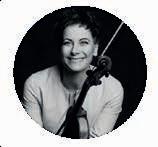
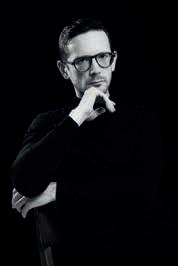
m.pastuszka@ohorkiestra.com
z.magiera@ohorkiestra.com